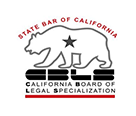In late February, the U.S. Citizenship and Immigration Services (USCIS) announced the Inadmissibility on Public Charge Grounds final rule. Under this rule, immigrants applying for a U.S. green card may be at risk for denial if they use public benefits too often – or are deemed likely to rely on benefits.
The new rule is meant to protect benefits for American citizens. However, many who oppose the rule have called it dangerous. Some believe that it’ll encourage immigrants to give up much-needed benefits in order to increase their chances of getting a green card.
The rule puts certain people at a higher risk for green card denial. Specifically, you may be at risk if you’ve used public benefits for more than 12 months in a three-year period. Benefits may include:
- Medicaid
- Housing assistance
- Food stamps
This is calculated by the amount of time you used each benefit. For example, if you used food stamps and Medicaid at the same time for six months, it counts as 12 months total.
The public charge rule also includes “negative” and “positive” factors for USCIS agents to consider when reviewing green card applications. If one of the negative factors applies to you, you may be subject to denial. Negative factors include:
- Unemployment
- Failure to complete high school
- Not being fluent in English
It’s important to note that USCIS officers weigh many factors when reviewing green card applications. Falling into one of these categories does not automatically result in your denial. Also, certain groups of people are exempt from this rule, including:
- Refugees
- Asylum-seekers
- Medicaid users who are pregnant or under 21
- Foreign nationals serving in the U.S. armed forces
- Those who already have their green cards
Regardless of the intentions of the new rule, it may have damaging effects. California officials have vowed to continue challenging the rule – so that all Californians receive the care that they need.




